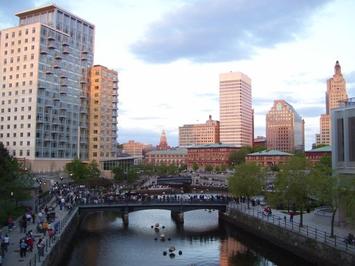
I wrote my latest piece about Providence, but it could apply to a lot of cities. It’s a bit of a contrarian take on civic engagement. For some people, too much civic engagement can result in a fixation on problems, which then turns them negative on the community. This makes the grass look greener in other places. Whereas if they just enjoyed the good things about a city instead of worrying about civic challenges, they might enjoy life more and be more likely to stay. Here’s an excerpt:
When I was living in Rhode Island, I tried to dig more into how the place worked, to understand the culture, public policy, etc. I tried to do what a good civically engaged person would do. And honestly, I found a long list of distressing problems. But now that I am just visiting, I’m able to tune all of that out of my mind and just enjoy the great things it has to offer.
It made me think that if only someone didn’t care about various important, but in some respects personally remote, civic problems and controversies, living in Providence would be pretty great. You could enjoy the many things the city has to offer, without taking on the psychic stress of wondering how the city is going to pay its pension bill or the various political follies.
Obviously, no one would want the people who are already civically engaged in Providence to stop being that way. But every city has a class of people – today maybe the majority – who are just there for the opportunity it presents and the lifestyle they get to enjoy. That includes even boomtowns like Denver or Nashville.
The people moving to these places aren’t doing it with the idea of digging in on civic issues. They are coming there because these places are cool and offer the kinds of lifestyle, amenities, and professional opportunities they want. It’s great that there are people forcing a debate about the subsidies being handed out to Amazon in Nashville, for example. That’s very important. But realistically most people aren’t going to be that interested. Unless it’s an issue that affects them personally, they are just there to consume. And of course, they will be part of the local talent pool, spend money, and pay taxes while doing it, thus contributing at some level civically as well.
Click through to read the whole thing.
This piece originally appeared on Urbanophile.
Aaron M. Renn is a senior fellow at the Manhattan Institute, a contributing editor of City Journal, and an economic development columnist for Governing magazine. He focuses on ways to help America’s cities thrive in an ever more complex, competitive, globalized, and diverse twenty-first century. During Renn’s 15-year career in management and technology consulting, he was a partner at Accenture and held several technology strategy roles and directed multimillion-dollar global technology implementations. He has contributed to The Guardian, Forbes.com, and numerous other publications. Renn holds a B.S. from Indiana University, where he coauthored an early social-networking platform in 1991.












